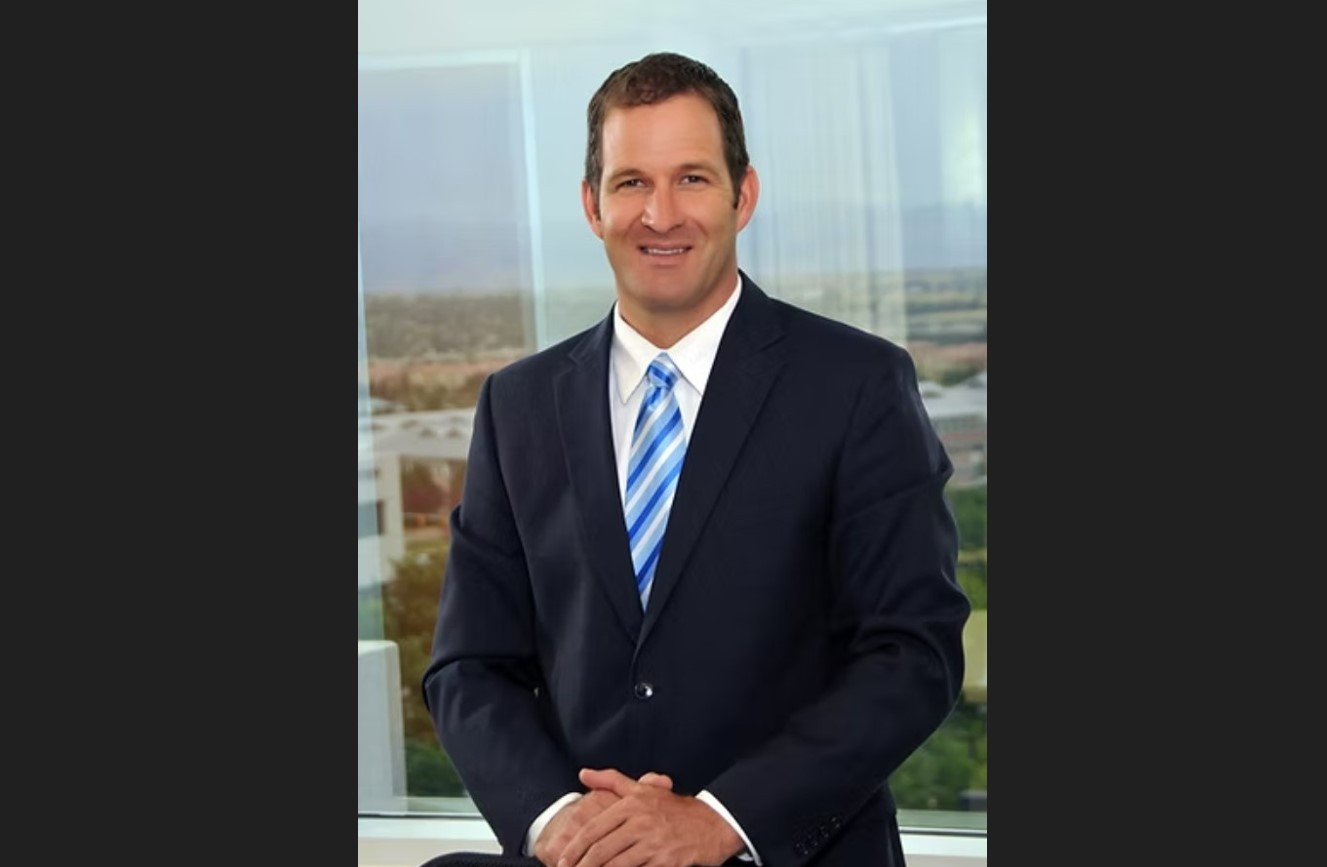- Harbour Investment Partners Offers Unmatched Opportunities
- Here’s How Charlie Munger’s Final Investment Move Doubled His Money, Reveals His Close Friend Li Lu
- Indonesian Policy Studies’ Senior Fellow Warns Governments About Strongarming Companies Like Apple For Investment, Saying ‘It Can Be a Dangerous Game To Play’
- Wall Street Analysts Think Walmart (WMT) Is a Good Investment: Is It?
- Sonos Inc (NASDAQ:SONO): A Bullish Investment Perspective
David Anthony, 49, is a former investment advisor. (Courtesy Optimal Tax Plan)
You are viewing: Barred due to fraud allegations, investment advisor blames attorneys
Barred for a decade from selling investments after allegedly orchestrating an eight-figure fraud, the former Westminster advisor David Anthony is making long-shot efforts to clear his name and return to work — and suing the lawyers he partly blames for his predicament.
“There is a fraud in Colorado that has cost investors $80 million, but it wasn’t by their investment advisor,” Anthony said last week. “It was by the State of Colorado. It was by a judge.”
In 2022, the Colorado Division of Securities sued Anthony, accusing him of raising $26.5 million from investors, primarily to buy life insurance settlements, without disclosing that he would be keeping at least 21 percent of that money as commissions. He also commingled assets and paid early investors with cash from new investors, the Division of Securities alleged.
Anthony adamantly denied all of that and pushed back on the idea that investors had lost out, saying the investments had not ripened and therefore could not be deemed failures.
“There is no fraud or deceit and the businesses are still afloat, and may ultimately be profitable,” Anthony’s attorney, Otto Hilbert, wrote in response to the allegations in April 2022.
But Denver District Court Judge Darryl Shockley, a former white-collar prosecutor, saw matters differently. He froze the Anthony family’s bank accounts, including those of his teenage children, and appointed a receiver over Anthony’s business accounts and personal finances.
“The Division of Securities examiners, investigators and auditors, along with the lawyers from the Colorado Attorney General’s Office, achieved a really good outcome in this matter,” Tung Chan, the state securities commissioner, said in a press release at the time.
See more : 10 Areas Where VCs Are Looking To Invest In 2025
Ahead of a February 2023 trial, all sides met for an eight-hour mediation hearing. Hilbert recalls there being seven lawyers in the room that day, “all well-versed in securities law.”
“It wasn’t like we just walked in and it was resolved. It was a full-blown discussion of every law, of every fact, of every defense, and so forth,” Anthony’s former attorney said.
A series of settlements were signed that day. In them, Anthony agreed to a 10-year ban on selling securities in Colorado and turned over his Westminster property, plus two properties in Heber City, Utah. Two years later, they’re still bickering over that first provision.
Anthony said he was told during the mediation that he would be able to sell investments in states not named Colorado. “And then, literally an hour after signing the settlement, we realized that the information the state had told us was not true,” he recalled by phone last week.
Strictly speaking, the settlements only bar Anthony from selling in Colorado, since this state cannot tell other states whether to grant him a license. Hilbert said, “The settlement was that he would agree not to sell in the state of Colorado. That was as far as it went.”
But other states, including Utah, weigh prior discipline when deciding whether to license.
“There is obviously major concern if you entered into an agreement where you won’t sell,” Hilbert said. “So, you have to be very careful about how the agreement is implemented.”
Anthony called the Utah Division of Securities, which confirmed he wouldn’t be able to advise clients there. He fired Hilbert and hired Paul Vorndran at Jones & Keller, who filed a motion to set aside the mediator settlement before it could be approved by the court. Judge Jill Dorancy, who had taken over the case from Judge Shockley, declined to do so in early 2023.
“If the defendant was concerned about impact that the prohibition in this case would have on his ability to work outside the state of Colorado, those terms should have been reflected in the settlement agreement,” Dorancy wrote then. “Defendant could have requested an agreement which was conditioned on his ability to work in Utah … He failed to do so.”
Dorancy then refused to reconsider her decision and an appeal to the Colorado Court of Appeals was rejected when it was filed too late. The case that the Division of Securities filed against Anthony in 2022 was closed last fall. He remains unable to sell investments.
See more : Trump taps ex-investment banker Glass as U.S. ambassador to Japan
“I’ve tried for the past two years to get licensed and I can’t do anything,” he complains. “I can’t open a bank account, I can’t sell timeshares, I can’t be an insurance agent.”
Anthony has asked the U.S. Securities & Exchange Commission to grant him an investment advisor license. Predictably, he is now facing questions from the SEC about his past. In a letter from Anthony that the SEC posted online, he maintains the state investigation was a sham.
“You’ve got a judge here (Dorancy) who is too busy to actually look at the facts and is too progressive, too liberal,” he told BusinessDen. “I’m a white Christian conservative who voted for Trump and did fundraisers for Trump at $10,000-a-plate and they use that against me.”
Judges Dorancy and Shockley are black and appointees of Democratic Gov. Jared Polis.
“We stand by the fraud allegations filed in our complaint against Mr. Anthony,” Chan, the securities commissioner, said last week. “We also agree with the district court’s subsequent order to freeze Mr. Anthony’s assets and to appoint a receiver based on our complaint.”
That receiver, Randel Lewis, continues to control Anthony’s finances, which further aggravates him (“The real crook in this case,” Anthony calls him). Lewis, who declined to be interviewed, has sold off $2.6 million in real estate and $5.3 million in life insurance settlements, money that will eventually go to investors who lost out. Lewis has been paid $331,000.
Anthony maintains that investors have lost money only because a receiver unfamiliar with his investments was appointed, and that investors’ $26.5 million would otherwise be worth $80 million today. Lewis said the Anthony estate has more debts than assets.
On Jan. 3, Anthony sued Hilbert for recommending he sign the settlement (“That was just malpractice to a tee”) and Vorndran for missing the cutoff date to appeal (“Paul is a good guy, he just forgot”). Vorndran did not answer a request for comment on the case.
“Was he wrongfully accused? There were a lot of accusations, so I don’t know if he was wrongfully accused,” Hilbert responded when asked. “I don’t have an opinion on that.”
“Dave Anthony is a very nice guy and a very bright guy,” added the attorney, a sole practitioner in Denver. “That’s what I have to say about him personally. He’s a very nice man.”
Source: https://magnacumlaude.store
Category: News

